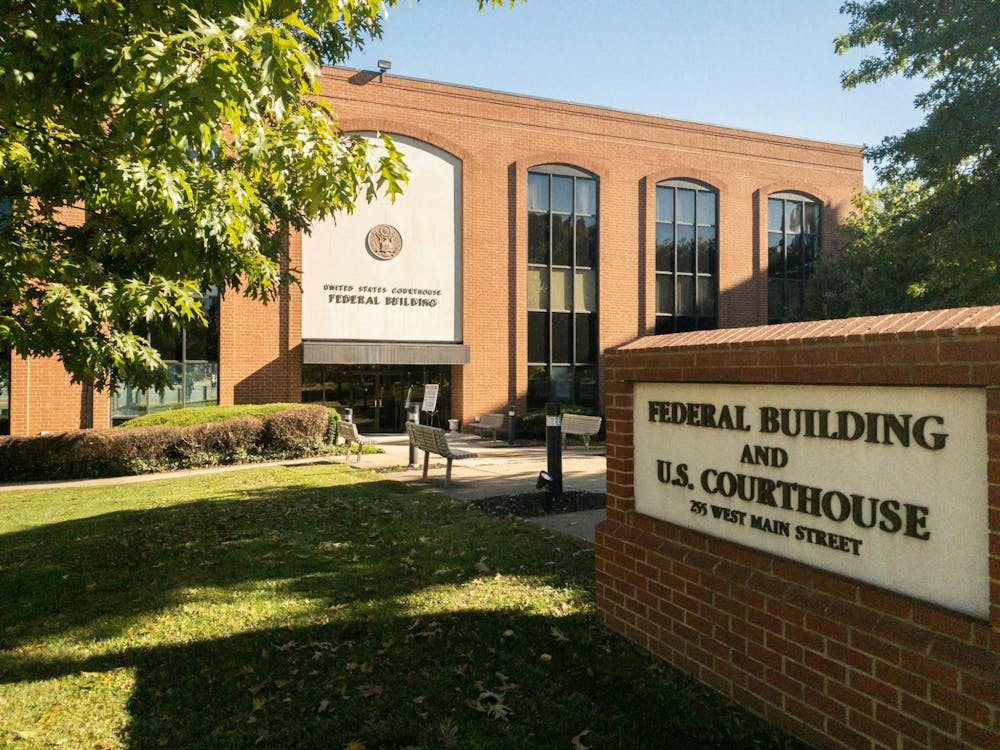IT'S THE MOST wonderful time of year. No, I'm not speaking of the NFL playoffs, nor am I particularly excited about the cold, snowy weather. As we students enjoyed our final week off from academics, downtown Richmond bustled as legislators, staffers and lobbyists poured into Capital Square for the commencement of this year's short General Assembly session. While most of the media has focused on the dreary state of the Commonwealth's fiscal affairs, financial support for this institution came out fairly well when Gov. Mark R. Warner proposed his budget to the General Assembly. But there are a few other proposed bills and non-financial issues that deserve a watchful eye from students and faculty of the University: namely, a proposal to eliminate tenure, a bill to modify the statute on hazing, and a change to current laws regarding medical-related parental notification.
First, to address the budget -- the situation is not to be taken lightly. Virginia is essentially broke. The political climate is against any manner of revenue increase (read: tax hike) and the cuts already handed down to the University are quite severe. Professors will go another year without a raise, reducing the value of wages; fewer classes will be available as vacant professorships go unfilled; and average class sizes will inflate dramatically.
However, this is old news. Warner did not cut any deeper into University funding when he announced his budget proposal just before Christmas. The point is that everyone knows there isn't enough money to go around, so there's no point in asking -- at least not this year.
It makes sense that with all the depressing budget news, many legislators have shifted their focus to programs and initiatives that might be viewed as a positive accomplishment during the session. State Del. David Albo (R--Springfield) is a great example of how such good intentions might well pave the University's road to hell. When an untenured, yet nationally recognized music professor (as claimed by Albo) was let go from Virginia Commonwealth University, the delegate cried fowl and blamed the tenure system for forcing out a talent who may have eclipsed tenured professors at VCU.
However, most members of the academic community agree that eliminating tenure will create a competitive system of hiring in Virginia, the likes of which might be compared to free agent trades in professional sports. Albo's bill to abolish the tenure system in Virginia's public colleges and universities will severely hamstring our ability to recruit and retain a cadre of world-class academics. Although it is unlikely the bill passes the Senate, such policy is dangerous for Virginia, and sets a frightening precedent.
The second bill, ironically also proposed by Delegate Albo, is a positive bill for the University that redefines and refines the current statutes on hazing. Proposed by our administration, the bill would make the statutory definition of hazing much more specific. In addition, the revision would eliminate the state-mandated single sanction on hazing: expulsion.
Currently, if a student is convicted by the University Judiciary Committee of any sort of hazing (as the law is very loose in defining the parameters of the act), the student must be expelled, rather than held subject to the usual student-conducted sentencing as is customary with all other UJC trials. The new bill would return the ability to adjudicate punishment to the judicial bodies (i.e. UJC) of each institution. Student governance will regain an important responsibility if this legally-technical measure passes.
The final bill does not pertain as much to the University itself as it does to students and young people in general. Proposed by State Del. Scott Lingemfelter, R--Prince William County, the bill would require all serious medical procedures performed on minors to be reported to their parents. As the bill reads, this includes, but is not limited to, "sexually transmitted diseases, pregnancy, illegal drug use, promiscuous sexual behavior and the contemplation of suicide." In addition, this bill requires state and local government agency employees to give parental notice at least seven days prior to providing or prescribing contraceptives to any minor. This severely constricts the rights of students under the age of 18 and will have major implication for Student Health Services in the future.
These three bills are only a taste of what the General Assembly is facing this session, which ends Feb. 22, but each obviously has some effect on each and every student at the University in one way or another.
It remains important that students keep themselves well apprised of the General Assembly's business as the session continues. Their decisions will inevitably have a great effect on the direction and policy of this university and the students who attend it.
While each year such a wish becomes more far-fetched, we should all hope that the wise lawmaking of that body can maintain the future health and prosperity of this institution. The future value of our degrees depends on it.
(Preston Lloyd's column appears Thursdays in The Cavalier Daily.
He can be reached at plloyd@
cavalierdaily.com.)






